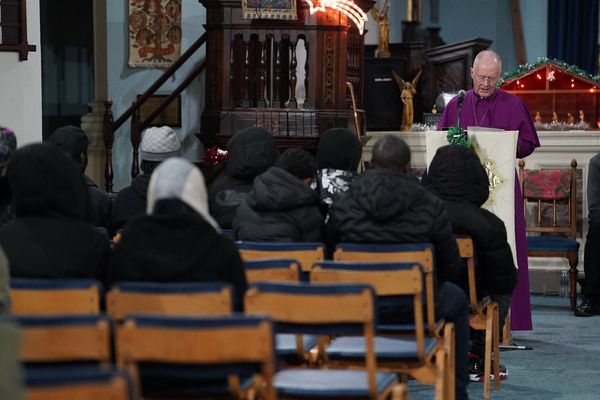PLANS to introduce assisted dying have passed their first Commons hurdle, in what could be the biggest social change in Britain since the legalisation of abortion.
MPs backed Labour backbencher Kim Leadbeater’s Terminally Ill Adults (End of Life) Bill by 330 to 275, a majority of 55 votes.
It puts Parliament firmly on the side of public opinion, which is overwhelmingly in favour of assisted suicide.
A similar effort failed to pass the Commons in 2015.
MPs were given a free vote in Friday's division and the SNP abstained, saying the bill did not affect Scots.
The issue has split Keir Starmer's Cabinet, with prominent figures such as Health Secretary Wes Streeting (below) opposed to the legislation.
Justice Secretary Shabana Mahmood has also spoken out against assisted dying, saying it could result in the state offering "death as a service".
The Prime Minister voted for the legislation, which will now be scrutinised by a committee.
The vote came after around four and a half hours of debate.
Mother of the House Diane Abbott (below) spoke against the bill comparing it with the abolition of the death penalty.
She said: "I would recall to the House that in 1969, Parliament voted to abolish the death penalty for murder. Public opinion was actually against it but MPs believed on a point of principle that the state should not be involved in taking a life.

“It was a good principle in 1969 and it remains a good principle today."
The veteran Labour MP said she was not against assisted dying in all circumstances, but added: "I do not believe that the safeguards are sufficient."
Leadbetter's bill would allow people medical help to take their own lives if they are terminally ill and expected to die within six months.
The bill specifies that those wishing to take their own lives must have the mental capacity to make the decision and that this has been expressed free from coercion.
They must make two declarations that they wish to die,, witnessed and signed, and satisfy two doctors that they are eligible.
In an emotional speech, Labour MP Marie Tidball, who has lived her entire life with a disability, said terminally ill people must be able to end their lives with "dignity".
Tidball told MPs how an experience recovering from surgery in hospital at the age of six had informed her decision, saying she had been in so much agony she told her parents: "I want to die, please let me die".
She added: "I needed to escape from that body that I was inhabiting. That moment has come back to me all these years later. That moment made it clear to me that if the bill was about intolerable suffering I would not be voting for it.”
The Labour MP said she had since lived a “good life”, but added: “That moment also gave me a glimpse of how I would want to live my death, just as I have lived my life. Empowered by choices available to me.
“Living that death with dignity and respect and having the comfort of knowing that I might have control over that very difficult time.”
Tory MP Danny Kruger (above), one of the most prominent opponents of the legislation which has transcended traditional party lines, said that the bill failed to address "internal pressure" that people may put on themselves.
He said: "If you feel worthless or a burden to others, or if the NHS won’t offer you the treatment you need, or the local authority won’t make the adjustment to your home that you need, or if you have to wait too long for a hospital appointment, if you want to die because you think the system has failed you, that’s absolutely fine.”
Kruger said that the bill also failed to require judges making decisions on coercion from meeting a patient or for them to involve the person's wider family, creating a situation where "the NHS and judicial system are working in secret to bring about the death of their loved one".
But Leadbeater (above) said her bill was not about a "choice between life or death" but rather "giving dying people a choice of how to die".
She said that the checks for coercion were "very robust" and argued that rather than creating additional dangers, the bill introduced protections not currently in place.
Leadbeater insisted her bill would only ever apply to people who are terminally ill, rejecting arguments it created a "slippery slope".
She said: "I made a very conscious decision to name the bill 'Terminally Ill Adults (End of Life)’ rather than anything else. That title can never be changed and it ensures it is only adults who are dying that would ever come within its scope.
“As such, this Bill is not about people who are choosing between life and death, it is about giving dying people who have got six months or less to live autonomy about how they die and the choice to shorten their death.







